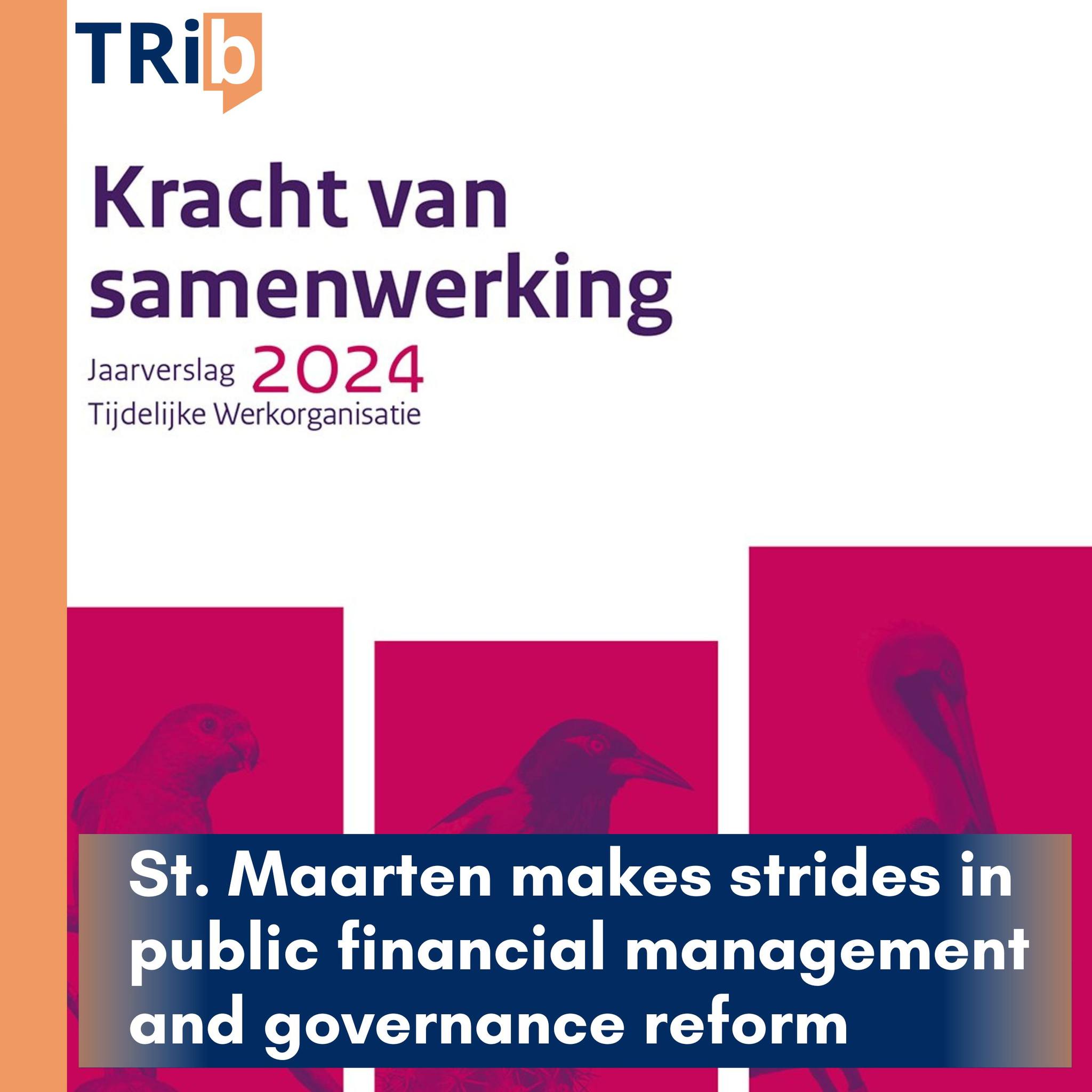GREAT BAY--The Government of St. Maarten, in close collaboration with the Temporary Work Organization (TWO) and under the Kingdom reform package, has made significant progress in strengthening public financial management, improving legal and administrative processes, and advancing institutional reforms aimed at long-term stability and transparency.
According to the 2024 Annual Report of the TWO, major developments took place under the “Future of Government Finance” program, with the Ministry of Finance spearheading a transformation in how the government plans, manages, and accounts for public funds.
The report underscores that for years, despite recognizing what needed to be done to improve financial accountability, progress had stalled due to limited capacity and lack of structural funding. With the launch of the Landspakket and the support of TWO, those barriers have been lifted, enabling strategic and technical assistance to push key reforms forward.
The Future of Government Finance program is focused on creating a transparent, efficient financial system that supports better budgeting, oversight, and strategic investment. In 2024, critical milestones were reached, including the redesign of internal financial processes, completion of a fit-gap analysis, development of a new financial administration system, and preparation of a policy-based budgeting framework. Full implementation is scheduled for 2025, when changes will become more visible across ministries and departments.
New systems are being embedded into policy and law, staff training programs are underway, and automated processes are being introduced to reduce reliance on individuals and ensure consistency. These steps are all geared toward long-term sustainability and reducing the risk of mismanagement or corruption.
Additional Results Achieved in 2024
Beyond financial reform, a range of important initiatives were implemented as part of the reform agenda:
• Taxation: The Tax Administration began clearing backlogs, launched a “quick wins” clean-up of tax records, and formed a Project Management Team to guide the tax system transformation. The design of a new tax treaty with the Netherlands was completed.
• Governance & Efficiency: Government IT processes were restructured, legal information systems were digitized, and peer reviews were completed for the Department of Statistics (STAT). A full inventory of government-owned and rented properties was compiled.
• Health: A new general practitioner information system was implemented across nine practices, marking a leap in digital health recordkeeping and coordination in primary care.
• Education: An in-depth review of the education system was completed in partnership with the Inspectorates of Education from the Netherlands and St. Maarten.
• Social Development: The Ministry approved an integrated socio-economic reform agenda aimed at improving workforce development and social resilience.
• Public Health: A national research study into gambling addiction was launched to address concerns over public health and regulatory gaps in the gaming industry.
The report emphasizes that the success of these reforms is not only dependent on technology and funding but also on coordination across ministries and commitment from all levels of government. The Ministry of Finance, with support from stakeholders and technical advisors, has rebranded the effort under the name “Future of Government Finance” to reflect its cross-government scope.
The TWO concludes that with continued investment, political will, and stakeholder engagement, St. Maarten is on a promising path toward greater autonomy, fiscal sustainability, and public trust.
Join Our Community Today
Subscribe to our mailing list to be the first to receive
breaking news, updates, and more.






